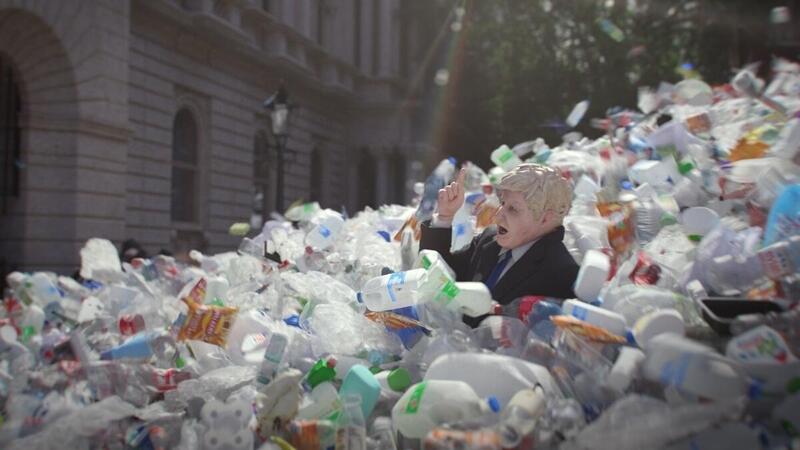Countries are considering a global target to curb plastic production, not just focus on recycling as the industry wants
Governments will soon debate whether to set a global target to reduce the production of plastics after negotiators put it on the agenda for plastics treaty talks in November.
The first draft of the new United Nations plastics treaty contains options where governments commit either to stop their plastic production rising above a certain level or to commit to a global target.
Another option is for governments to promise to “take the necessary measures” to cut plastic production, without committing to a target.
The three options will be discussed when government negotiators gather in the Kenyan capital of Nairobi in November, for the third set of talks on setting up the new treaty.
The draft says the targets could be met through regulation, the removal of subsidies for plastics and “market-based measures” like taxes.
As well as polluting land and sea, plastics are responsible for an estimated 3% of global greenhouse gas emissions through their lifecycle.
They are made from oil and gas, potentially offering a lifeline to the sector as climate action curbs demand for fossil fuels as an energy source. Targets to cut plastic production pull the lifeline away.

BP expects the share of oil demand for non-combusted (grey) uses like plastic to rise in the next few decades. (Photo: BP/Screenshot)
The European Union and a group of nations calling themselves the “high ambition coalition” support targets while major oil and gas producers like the US and Saudi Arabia are keeping quiet.
Reduce vs recycle
The plastics industry is lobbying to keep the focus of the treaty on recycling and waste management, not limiting production.
The American Chemistry Council, whose board includes representatives of Shell and Total, said in May that “restricting the production of plastic materials essential to delivering clean water, renewable energy, and sanitary medical and personal care products is the wrong approach.”
Reacting to the draft treaty’s release this week, campaigners were more pleased than the industry.
Greenpeace’s Graham Forbes said it “includes necessary provisions” while Tanzanian campaigner Ana Rocha said it “sets a positive baseline” and Yvette Arelano from Texas said it “takes a step in the right direction”.
On the other hand, the cha
Read More

